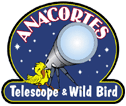Planetary Society Urges Congress to Save Arecibo

Yesterday, the Planetary Society submitted a statement to the Committee on Science and Technology urging the US Congress to prevent Earth's largest radio telescope -- Arecibo -- from closing due to lack of funds. Near Earth Objects (NEOs) have struck Earth with devastating results in the past. Radar tracking is the only way to precisely know the probability of impact, and the Arecibo telescope is the most powerful instrument for the job, 20 times more sensitive for NEO radar tracking than any other instrument in the world. The Planetary Society believes that the closing of Arecibo, due to lack of funds, may leave the planet more vulnerable to a future meteorite impact.
Comments:
As a professional research scientist for 25 years in health care, and a passionate but rank amateur astronomer, I ask the amateur astronomy community to take a moment to consider the effects of political lobbying-when it directly conflicts with scientific peer review. The scientific world is both very cold and very cruel in its review of what is the best scientific research to fund. But while it is true that in the peer review process there are winners and losers, this process has been in my naïve and humble opinion, the single most important reason for the outstanding progress in science in the US. In the era of “plenty” there have still been scientific ideas that were not judged as worthy as others and those proposals either had to wait their turn or had to be shelved. I speak from personal experience on this matter from both sides of winner and loser(in medical research). But I have not lost any confidence in this process.<br> There are several good explanations given by the Senior Review committee for their NSF funding recommendations. I have read them at:<br> http://www.nsf.gov/attachments/108113/public/Van_Citters_NSF_Programs.ppt#345,3,Finding 1 - The Scientific Challenge, <br> <br>http://www.nsf.gov/attachments/108113/public/Van_Citters_NSF_Programs.ppt<br><br>http://www.nsf.gov/mps/ast/seniorreview/q_and_a_12-06.pdf<br><br>http://www.nsf.gov/mps/ast/seniorreview/ast_response_to_dps.pdf (Wayne Van Citters, Director, Division of Astronomical Science : response to Guy Consolmagno at the AAS)<br><br>http://www.nsf.gov/mps/ast/seniorreview/ast_response_to_cornell.pdf (Dr. G. Wayne Van Citters, Director, Division Astronomical Sciences NSF: response to Dr. Joseph Burns at Cornell)<br><br>I ask you to read them as well.<br><br>These are the names of the Senior Committee that made these recommendations: <br><br>Tom Ayres - Colorado<br>Donald Backer - UC Berkeley<br>Roger Blandford - KIPAC/Stanford (Chair)<br>John Carlstrom - Chicago<br>Karl Gebhardt - Texas, Austin<br>Lynne Hillenbrand – Caltech<br>Craig Hogan - U. Washington<br>John Huchra - Harvard<br>Elizabeth Lada - U. Florida<br>Malcolm Longair - Cambridge<br>J. Patrick Looney - Brookhaven<br>Bruce Partridge - Haverford<br>Vera Rubin - Carnegie/DTM<br><br><br>And here is the bottom line from that committee:<br><br>“Proper maintenance of current facilities while<br>Simultaneously developing and beginning operation of the<br>proposed new facilities is infeasible under any reasonable<br>expectations for federal budget support based on past funding<br>levels. The cuts that are proposed to the existing program are<br>as deep as possible without causing irreparable damage and<br>will only allow a start to be made on new initiatives. The<br>scientific promise of the proposed new facilities is so<br>compelling and of such broad interest and importance that<br>there is a strong case for increasing the overall AST budget to<br>execute as much of the science as possible.”<br><br>“It should be emphasized that, in none of the proposed actions<br>can the facilities targeted be seen as redundant to the scientific<br>enterprise. Instead, the SR is recommending reduced AST<br>funding or closure of some telescopes that could be unique and<br>productive for 20 years.”<br>“These findings, which go beyond the SR’s charge, may appear<br>defeatist to some. However, the SR developed the more<br>optimistic view that, with <i>patience, cooperation and wise planning</i>, it<br>will be possible to realize the promise of the next generation of<br>major observatories.”<br><br><u><b>Please realize that political lobbying to change funding for a specific scientific project is going to degrade the system of peer review, and move it into the area of special interest lobbying, much to its detriment.</b></u><br><br>I ask the amateur astronomy community to write their political representatives and advocate for more global funding to the NSF and NASA, not for a specific scientific earmark. To ask for funding for a specific purpose will in the end take funding from something judged to have greater scientific value, and that will make matters worse, not better.<br>
Peer review always serves it own special interests. Direct participation by citizens in these debates should be encouraged and the public's voices should be heard and considered. After all, it is the public's money that is being spent on all of these projects.<br><br>Experts have a long history of serving themselves and their patrons at public expense.<br><br>Michael Miller<br>Chicago, Illinois
Funding Member
Sponsors
- Denkmeier Optical
- Matsumoto Company
- APM-Telescopes
- Astromart Customer Service
- SellTelescopes.com
- ASTROPHOTOGRAPHY BY MARTIN PUGH
- Pier-Tech Inc.
- astronomy-shoppe
- RemoteSkies.net
- OMI OPTICS USA LLC
- Desert Sky Astro Products
- ADM
- T.E.C
- GetLeadsFast, LLC
- Anacortes Telescope
- AstroMart LLC
- FocusKnobs
- jp Astrocraft, LLC
- Rouz Astro
View all sponsors


